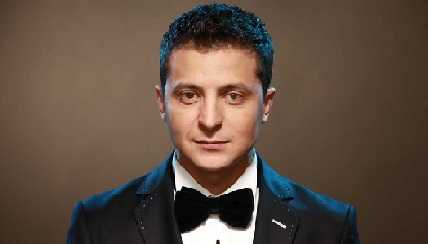
KYIV, Sept 19 (Reuters) - President Volodymyr Zelenskiy vowed there would be no let-up in Ukraine's fight to regain its territory as Kyiv said its troops had crossed a major river, paving the way for an assault on Russia's occupation forces in the eastern Donbas region.
Reflecting the dramatic change in momentum since Ukrainian forces routed Russian troops earlier this month in the northeast, U.S. President Joe Biden offered his strongest prediction so far that the Ukraine would win the war.
"They're defeating Russia," Biden said in an interview with CBS's "60 Minutes".
Victory would come only when Russian forces were completely driven from Ukrainian territory, and the United States would support Ukraine "as long as it takes", Biden said.
"Russia’s turning out not to be as competent and capable as many people thought they were going to be."
Crossing the Oskil River is another important milestone in Ukraine's counter-offensive in the northeastern Kharkiv region. The river flows south into the Siversky Donets, which snakes through the Donbas, the main focus of Russia's invasion.
Further beyond lies Luhansk province, the base for Russia's separatist proxies since 2014 and fully in Russian hands since July after some of the war's bloodiest battles.
Ukrainian troops "have pushed across the Oskil. From yesterday, Ukraine controls the east bank", the Ukrainian Armed Forces wrote on Telegram late on Sunday.
Serhiy Gaidai, Ukrainian governor of Luhansk, wrote on Telegram: "Luhansk region is right next door. De-occupation is not far away."
Gaidai said Ukrainian forces had regained full control of the town of Kreminna and the village of Bilohorivka. The two settlements are located on roads on the northern approach to the city of Lysychansk, whose fall after weeks of grinding battles in July put Luhansk wholly under Russian control.
Bilohorivka, the nearer of the two to Lysychansk, is located just 8 km (5 miles) from the city's outskirts.
Ukrainian forces swept through the Kharkiv region this month after bursting through the front line, sending thousands of Russian troops fleeing and abandoning their tanks and ammunition. In recent days, the pace of the Ukrainian advance has again slowed, but Zelenskiy said this was only because the forces were consolidating and preparing for further offensives.
"Perhaps it seems to some of you that after a series of victories we now have a lull of sorts," he said in his regular nightly address on Sunday. "But there will be no lull. There is preparation for the next series ... For Ukraine must be free. All of it."
ALARM OVER NUCLEAR PLANT
Ukraine accused Russian forces on Monday of shelling near the Pivdennoukrainsk nuclear power plant in the country's southern Mykolaiv region.
A blast occurred 300 metres (yards) away from the reactors and damaged power plant buildings shortly after midnight, Ukraine's atomic power operator Energoatom said in a statement. The reactors were not damaged and no staff were hurt, it said, publishing photographs showing a huge crater it said was caused by the blast.
"Russia endangers the whole world. We have to stop it before it's too late," Zelenskiy said in a social media post.
The strikes will add to global concern over the potential for an atomic disaster, already elevated over fighting around another Ukrainian nuclear power plant in the south, Zaporizhzhia, captured by Russian forces in March. Moscow has ignored international calls to withdraw and demilitarise it.
Since its forces were driven out of Kharkiv, Russia has repeatedly fired at power plants, water infrastructure and other civilian targets in what Ukraine says is retaliation for defeats on the ground. Moscow denies deliberately targeting civilians.
'ILLUSORY GOALS'
Russia's rapid losses over the past few weeks have shaken a Kremlin public relations campaign that has never veered from the line that the "special military operation" is "going to plan".
Officially Russia announced it was moving some troops out of the Kharkiv region to regroup elsewhere. But the losses are being openly acknowledged on state television, by commentators calling for escalation.
Alla Pugacheva, 73, Russia's most celebrated pop diva since the Soviet era, became by far the biggest mainstream cultural figure to oppose the war, with a post on Instagram denouncing "the death of our guys for illusory goals that are turning our country into a pariah and worsening the lives of our citizens".
Russian President Vladimir Putin met the leaders of China and India at a summit last week and acknowledged their "concerns" over the conflict, a rare nod to friction with the Asia powers he has turned to amid a total break with the West.
He belittled the Ukrainian advance: "The Kyiv authorities announced that they have launched and are conducting an active counteroffensive operation," he said with a grin at Friday's summit. "Well, let's see how it develops, how it ends up."
The Kremlin denied on Monday that Russia was to blame for atrocities that Ukraine says it has uncovered on territory it recaptured from Russian forces.
"It's a lie, and of course we will defend the truth in this story," Kremlin spokesman Dmitry Peskov said, comparing the allegations to incidents earlier in the war where Russia claimed without evidence that atrocities were staged by Ukrainians.
Ukraine has sent forensic experts to a huge burial site in woods near the city of Izium, where it says 17 soldiers were found in a mass grave with some showing evidence of having been tortured under Russian occupation.
In London, Ukrainian Prime Minister Denys Shmyhal and First Lady Olena Zelenska attended the funeral of Britain's Queen Elizabeth II. Russia was banned from the ceremony.




